Humility: This is one of those traits that tends to be under-valued and yet, is a key component not only of effective leadership but also, for the success of any practice. Jim Collins, a well-regarded and prolific author on leadership, refers to humility as the “x-factor” of great leaders. Humility is about being authentic, humbly acknowledging one’s own challenges, mistakes, and knowledge gaps. It is about being keenly interested in recognizing what you don’t know so that you can be open to learning. It is a willingness to ask for and accept help when needed. And one of the key benefits of humility is that you are more likely to create a work environment where your employees are also willing to be open to learning and to acknowledge their own vulnerabilities. The antithesis to humility is arrogance and bravado. Some physicians believe that being humble means that they might look incompetent or insecure to their staff and/or patients. In actuality, humility is a form of strength and self-confidence because it is a willingness to be vulnerable and open to not knowing (so that you can address your knowledge and experience gaps).
Essential questions: How can I enhance my effectiveness? What might I be missing?
Reflective listening: This is a skill that is critical to cultivate and practice because not only does it communicate to others that you are interested in them, it also might result in you learning something you did not know (a different perspective or new information). There are 2 necessary aspects: curiosity and acknowledging. Reflective listening starts with being genuinely curious about another person: the key word here is “genuinely”. Even if you don’t agree with the other person (or persons), being curious communicates a desire to understand. Genuine curiosity is expressed through open ended questions such as these: Tell me how you see it? What is your perspective on this? Can you say more? Once the person has shared his or her perspective, you move into the second key behavior – acknowledgement – which is reflecting back what you understand (it is not parroting back what the person said but more, trying to capture the essence of what was said). The beauty of acknowledgement is that you don’t need to agree with the person, you just need to communicate your understanding. And if you get it wrong, the person will tell you and then you can get curious again by asking for more information. Feeling truly heard often helps the person to feel valued and to know that their input is important.
Essential questions: What is this person’s perspective? How can I best acknowledge what s/he is saying?
Intentionality: Effective leadership does not happen all by itself – it requires being intentional about what you are trying to accomplish, how to best communicate with others, and how to motivate and influence. It is important to recognize that being right does not necessarily translate into being effective – the essential focus is to make sure you are being effective. Intentionality involves being aware of what behaviors and skills enhance your effectiveness – these are the ones you want to practice: and are triggers for you and result in ineffective responses – these are the ones you want to change by learning new responses.
Essential questions: What is the outcome or objective I am seeking? How might I be most effective at achieving the outcome I seek?
Self-Awareness: If you want to be a more effective leader, self-awareness is critical because it allows you to become cognizant of how you are being perceived. While you may have certain intentions, it is important to be aware of the impact that you are having on others. I have worked with many leaders whose impact is quite different from their intentions. For example, you might intend to want to help a staff member get better at a certain skill but the way you communicate your message ends up making them feel criticized, causing them to become defensive (which is not conducive to learning and improving). The easiest way to increase self-awareness is to ask for feedback. Here’s are some great questions that I often encourage leaders to ask of their people:
Essential questions: What can I do to support your success more effectively? What do you most need from me? How might I be a more effective leader?
Learning Conversations: If you want people to learn, grow, and improve you need to create an environment that is conducive to this. Psychologist Amy Edmondson’s research explored the correlation between medical errors and how mistakes and setbacks are handled. She found that the incidence of medical errors can be significantly reduced by encouraging people to openly discuss mistakes and mishaps. That way people learn not only from their own mistakes but also from the mistakes of others. However, if mistakes become opportunities to shame and blame (versus learn and grow), it causes people to avoid acknowledging and talking about those errors.
Essential questions: What can I or we learn from this experience? Am I communicating in a way the expresses an openness to learning (versus blaming)?
15% Off Medical Practice Supplies
VIEW ALL
 Manual Prescription Pad (Large - Yellow)
Manual Prescription Pad (Large - Yellow) Manual Prescription Pad (Large - Pink)
Manual Prescription Pad (Large - Pink) Manual Prescription Pads (Bright Orange)
Manual Prescription Pads (Bright Orange) Manual Prescription Pads (Light Pink)
Manual Prescription Pads (Light Pink) Manual Prescription Pads (Light Yellow)
Manual Prescription Pads (Light Yellow) Manual Prescription Pad (Large - Blue)
Manual Prescription Pad (Large - Blue)__________________________________________________
Appointment Reminder Cards
$44.05
15% Off
$56.30
15% Off
$44.05
15% Off
$44.05
15% Off
$56.30
15% Off

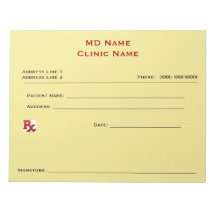
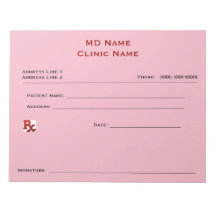




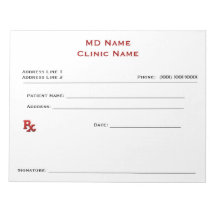

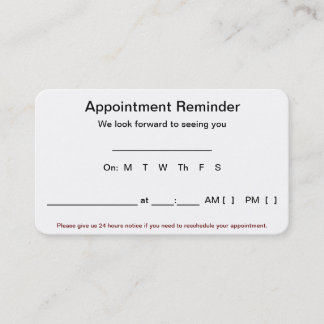


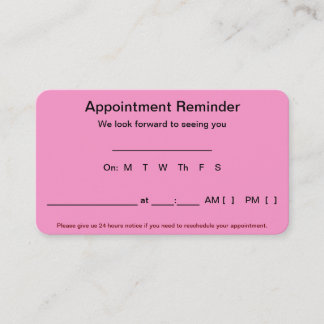
No comments:
Post a Comment